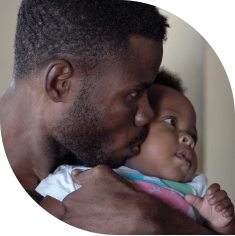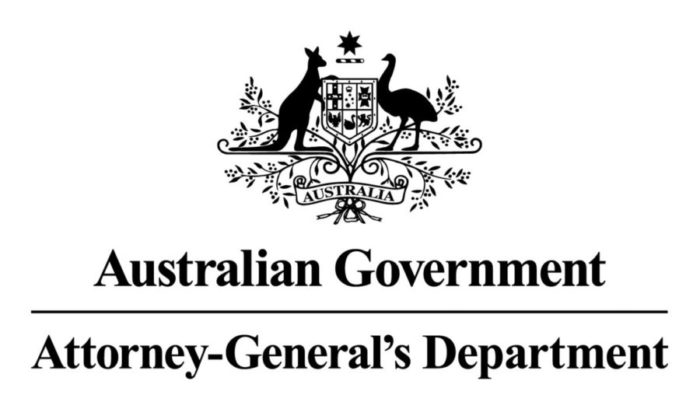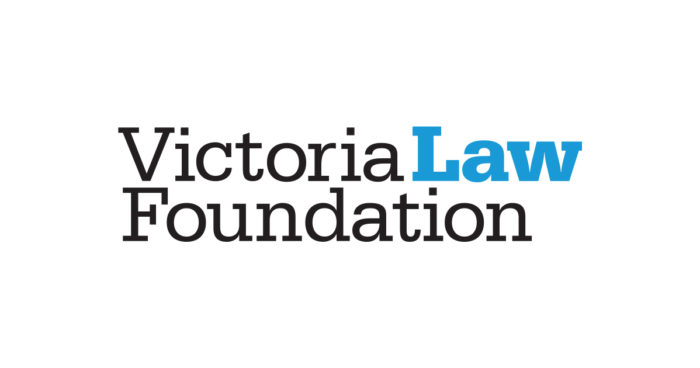Our Reach
We are committed to being flexible, innovative and responsive to address the complex legal needs of our clients and communities across a broad geographical area.
Our Stories
Alhaadi's Story

Alhaadi was an international student from Kenya studying in Australia. He was of low means and unable to afford a private lawyer. During his time here, he married Eidi and they had a child. The relationship broke down after a dispute arose back in Kenya about the dowry that Alhaddi’s family was expected to pay to his bride’s family. Without the Alhaadi’s knowledge, Eidi obtained Kenyan travel documents which permitted her to remove the child from Australia back to Kenya. Upon arrival there, the Eidi left the child with the maternal grandmother and then returned to Australia.
As soon as Alhaadi learned that Eidi had left the child in Kenya, he went to the Federal Circuit Court in Dandenong where he spoke to a PCLC duty lawyer. Having regard to the gravity of Alhaadi’s matter and his inability to deal with its legal complexity, the duty lawyer assisted him to file an application for orders to have his son returned to Australia, and then agreed to appear for the client as a friend of the court.
The Court at first instance expressed doubt that it had jurisdiction to make the orders sought by the client because Kenya was not a signatory to the relevant Convention, and the child was not residing in Australia at the time the application was made. The Court indicated that the matter should be dismissed.
Based on extensive experience gained in previous international family law matters, the PCLC duty lawyer sought to distinguish previous judgements relied upon by the mother’s lawyer at the hearing, and was successful in having the matter adjourned for contested hearing on jurisdictional issues. Had the client not been represented, it was likely that the Court would have accepted the mother’s lawyer’s submissions and dismissed the client’s application.
In preparation for the contested hearing, the duty lawyer secured pro bono assistance from an international family law Barrister and written submissions were drafted by the PCLC duty lawyer. These submissions were presented by Counsel at the contested hearing.
The Court was persuaded by Counsel’s submissions, and decided that it did have jurisdiction to deal with the matter. Accordingly, parenting orders were made. Importantly, Eidi was prohibited from leaving the country and ordered to have the child returned to Australia. Alhaadi is still attempting to secure Eidi’s compliance with these orders.
This case illustrates the critical importance of availability of duty lawyer services and subsequent casework in international family law matters. Alhaddi received significant pro bono legal assistance because our duty lawyer saw the importance of mounting technical legal argument, so that jurisdiction would not be a barrier for families facing similar fact scenarios.
More broadly, the decision of the Court sends a clear message to parents intending to remove children from the jurisdiction to non-Convention countries that Australian family courts have jurisdiction to make parenting and other orders necessary to secure the return of those children. This is significant considering the increasing frequency of removals to non-Convention countries witnesses by our Federal Circuit Court duty lawyers.
A duty lawyer service provided by dedicated and driven community lawyers can change a life and strengthen a community.
Font Resizer
Alhaadi's Story
Will I see my son again?
Zarine's story

Since coming to Australia from Afghanistan in 2008 Zarine, her husband and their 7 children have lived in the same property. The family received a notice to vacate from their Landlord who was intending to move back into the property. Zarine was concerned that she and her family would not be able to secure a new rental property before they were required to leave, and would find themselves homeless. Zarine had been trying to find a new property, but due to the size of her family and the financial restrictions they faced, due to both adults receiving only Centrelink benefits, it was proving especially difficult.
Our advocate attended at VCAT with Zarine and successfully challenged the Landlords application for possession. The matter was adjourned for six weeks giving the Landlord the option to renew his application. At the next hearing when the Landlords application for possession was successful, our advocate managed to secure a further one-month extension.
With the additional time, Zarine and her family were able to find an appropriate rental property. Zarine and her family have now secured housing and received their bond back in full.
Font Resizer
Zarine's story
A place to call home
Lorraine's story

Lorraine had been living in rooming houses for years. Until recently she had been in the same rooming house for 10 years but after her partner died, this was no longer appropriate for her. Lorraine was lucky and found a ‘women-only’ house where she developed strong connections with other residents.
Lorraine has four children, but has had no contact with them for many years. She acknowledges that she was the cause of much of the conflict with her children and understands why they still do not want to see her. As a result, Lorraine lives a very isolated life, and greatly valued the friendships she had formed in the house.
Our Rooming House Outreach Worker and our Social Worker (RHOP team) had been visiting Lorraine for some time, linking her in with community support and providing material aid. During one of their visits, Lorraine explained that she had been assaulted on the weekend by a new resident. Apparently, while under the influence of drugs or alcohol, the new resident had barged into her bedroom and attempted to strangle her. The police were notified, and an intervention order was taken out to protect Lorraine. The property manager was also notified in the hope that they would take note of the intervention order and implement measures to assist with Lorraine’s protection.
Unfortunately the property manager decided to serve a ‘120 day notice to vacate’ on both Lorraine and the woman who assaulted her. Lorraine was referred to our Tenancy Team, but as a ‘120 day notice’ can be issued without reason there was no recourse available to her. Lorraine had to find alternative accommodation.
Suitable rooming house accommodation is very difficult to find, with many houses being in poor condition and not well maintained. As our social worker put it: ‘’Residents are referred to rooming houses in a random fashion, often with extremely challenging combinations of individuals living under the same roof. It is not unusual to find people with serious mental health problems living with others with entrenched addiction issues or extreme aggressive or violent behaviours.”
Despite this, with help from the RHOP team, Lorraine secured accommodation at a local caravan park as she wanted to live by herself. Her friends from the rooming house have promised that they will come and visit.
Although this has been a difficult time for Lorraine, she now feels more informed about her rights as a resident and is determined to exercise them in the future if necessary. The RHOP Team will stay in contact with Lorraine, especially during her transition, and until she is well established and linked in with local services.
Font Resizer
Lorraine's story
A weight lifted
Simon's story

Simon was not travelling well; he had suffered with depression and anxiety for more than a decade. Following the recent breakdown of his 16-year relationship, his mental health began to deteriorate. This downfall was exacerbated by being unable to afford psychiatric support. He was attempting to manage his mental health with the assistance of his GP but had recently stopped taking his medication.
Simon knew he was not coping and needed help. As with many clients confined to Centrelink assistance his only option was to attend at the emergency department. The emergency department was busy and whilst waiting in a cubical he became convinced that hospital staff were ignoring him. His anxiety reach such a point that he grabbed a butter knife and approached a police officer repeatedly asking that they shoot him. The situation escalated with the police resorting to deterrent spray and knocking the knife from Simon’s hand with a baton.
As the resources of the emergency department were stretched, Simon was discharged without a mental health assessment. The Critical Assessment Team followed up the next day. However, Simon was not suicidal at the time of the visit and no further intervention was planned.
The incident at the hospital saw Simon charged with ‘assault police’ and ‘threat to assault police’. Simon attended an appointment with a PCLC lawyer, stating how fearful he was of going to jail. Furthermore, he had not yet been able to secure the medical support he needed to address his mental health issues.
Following lengthy negotiations with our lawyer, the police would only agree to withdraw the ‘attempt to assault police’ if Simon agreed to plead guilty to ‘assault police’.
It was explained to Simon that on the facts, it was arguable that the police did not have enough evidence to support a finding of guilt to assault police. Simon felt he was too unwell to contest the charges.
After seeking a sentencing indication from the Magistrate, Simon was advised that the best way to proceed would be to plead guilty and with submissions in mitigation being presented to the court. Simon agreed, and was represented by our lawyer.
The submissions highlighted the attempts that Simon had made to obtain the assistance he desperately needed and the barriers he continually faced. The Magistrate was persuaded by the arguments and ordered Simon be placed on the Court Integrated Services Program. This saw Simon receiving a mental health assessment and having a treatment plan developed, including the allocation of a case co-ordinator who would facilitate on-going mental health support for him.
Simon will be placed on a 12-month good behaviour bond without conviction after he successfully completes his treatment plan.
The approach taken in relation to Simon’s legal matters ultimately saw him receiving the intervention for his deteriorating mental health that he urgently required. This means that Simon is less likely to reoffend
and gives him the best chance to get well and go on with his life. It is doubtful that Simon would have obtained this result if he had not had the support and representation of one of our lawyers.
Many of the clients who access the legal assistance sector have numerous legal and social issues impacting upon their lives. To address this PCLC runs a holistic practice. This means that along with ensuring we are accessible to the clients who need us the most, we also endeavour to assist clients with as many of their legal issues as possible. Frequently lawyers and advocates co-ordinate across practice areas to provide a multi-faceted service to those clients who need it. What a difference two or three lawyers can make.
Font Resizer
Simon's story
Therapeutic justice - helping people to live
Maree's story

Sometimes being at the right place at the right time makes a big difference.
Maree had just given birth to her first child and was attending one of her maternal health appointments. Maree disclosed that her boyfriend, Vince, was currently in prison after assaulting her while she was pregnant. She was feeling stressed and fearful of what would happen when he was released.
The maternal health nurse referred Maree to the PCLC lawyer who attends the Council’s Enhanced Maternal Health Service on a weekly basis as part of one of our health-justice partnerships. Maree explained that as a result of Vince’s assault against her the police had successfully applied for a Family Violence Intervention not include the baby, as he had not been born at the time. Our lawyer immediately contacted the police and persuaded them to apply to include the baby on the current intervention order.
Maree consulted with our lawyer at the maternal health centre on a couple of occasions receiving assistance in relation to child contact, the birth certificate and passport applications.
As soon as Vince was released from prison he contacted Maree in breach of the Intervention Order. Maree was fragile and scared but with the support of our lawyer she reported the breaches to the police. Maree was referred to a family violence counsellor by the maternal health service and began attending regularly.
During one of her conversations with our lawyer Maree mentioned that she had a large number of outstanding fines in her name. She explained that they had all been ncurred by Vince while he was driving her car. The PCLC Fines Team assisted her to make a special circumstances application which resulted in all her fines, except two for excessive speed, being withdrawn.
The Fines Team also identified Maree as a perfect candidate for the Work Development Permit Scheme (WDP), whereby she could ‘work off’ off her remaining fines by regularly attending counselling. Maree’s family violence counsellor agreed to sponsor her.
During the finalisation of the WDP process it was discovered that Maree had an unpaid court fine that would disqualify her from the program. Our fines lawyers were able to establish that the fine had actually been dismissed by the Court, but that the information had not been forwarded to Fines Victoria. As a result, this matter was able to be quickly resolved and Maree is now paying off her fines and receiving the counselling she needs to help her have a safer and happier future.
Font Resizer
Maree's story
A weight lifted

Thierry Pascal
Chairperson

Jackie Galloway
Chief Executive Officer
CEO & Chairperson's Message
Peninsula Community Legal Centre Inc. is built on one simple and powerful belief: denying access to justice is an injustice.Each day PCLC works in courts, community and health settings to deliver justice to our community and strives for a fair and inclusive society that promotes and protects human rights and equality before the law. This year marks our 42nd year of providing critical legal services to thousands of vulnerable and disadvantaged community members in the South East suburbs of Melbourne; while also engaging in systemic advocacy and community development and engagement work which has a significant positive impact in strengthening our community.As Chairperson and CEO, we are honoured to serve this organisation and work with such committed and passionate advocates. We are extremely proud of the accomplishments of all our staff and volunteers, and are very grateful to all who supported our work and mission in 2019.





















